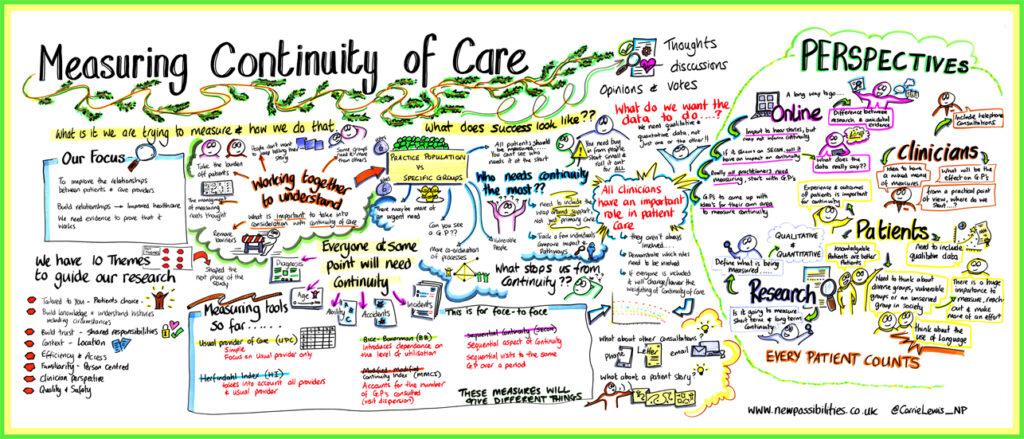QUERCC
Quantifying, Understanding and Enhancing Relational Continuity
of Care
Update no. 5: July 2024
Update no. 4: May 2024
On the morning of 9th May 2024, the QUERCC team hosted an online workshop on workload, staffing, productivity and continuity of care. This impromptu online workshop brought together researchers and analysts with interests in workload, staffing, productivity and continuity of care in primary care. There will be short presentations and a wide discussion about the factors affecting demand for primary care consultations, how continuity of care influences demand, the effects of staffing turnover on continuity of care clinical outcomes, how staffing and funding affect patient experience.
The idea was the brainchild of a conversation between Tom Marshall and Steve Wyatt (of The Strategy Unit). Steve had recently published three reports. One on long-term trends in GP practice consultation rates, a second on the gap between need for and supply of GP practice consultations and a third on GP practice productivity, efficiency, and continuity of care. He pointed out that some current policies intended to increase access (using allied health professionals to provide care, policies to divert patients to community pharmacies, creating hubs to provide acute primary care) may also reduce continuity. Two analyses have shown that lower continuity may increase demand for consultations: one by Harshita Kajaria-Montag and the other a PhD thesis by Anas El Turabi. Other researchers have investigated staffing and patient experience and the link between good clinical care and staff turnover in general practice. So we decided to invite these researchers to take part in an online meeting and see if we could generate more research ideas. All the invited researchers were very enthused and interested in the issues raised, so the workshop was born.
‘We’re hoping to get a better understanding of how current policies are impacting continuity of care and how this might be affecting general practice. It will be good to get a lot of expertise thinking about this at the same time, to see what ideas are generated.’
Update no. 3: March 2024
Update no. 2: February 2024
We invited a sample of the same participants back to join us for a second workshop to debate the question of ‘How to measure continuity of care and for which patient groups?’ For general practices to know how well they are delivering continuity of care, they need to measure it. There are several different ways of measuring continuity which are calculated from the pattern of consultations. Our work on QUERCC aims to clarify these issues for general practice and the workshops provide important sensitising information for us to take forward to the next stages of the research. Working with team from New Possibilities our researchers illustrated the range of ways that continuity can be measured to participants, and participants voted on scenario’s we described. The slides illustrating a range of measurement scenarios are available here. New Possibilities produced a visual summary of the discussion which highlighted the complexity of the issues in hand.

Study update no.1: November 2023
The QUERCC team held the first in a series of two workshops exploring the meaning and measurement of continuity of care in general practice on Friday 24 November at the Exchange central Birmingham. Thirty members of the public [representing patients, health care professionals and researchers involved in primary care research] joined the workshop to debate ‘what continuity of care means to you’. The workshop used coproduction methods to ensure all participants and especially patients had their view listened to. It was led by facilitators from the Birmingham based New Possibilities and their team produced a visual summary of the narrative of the discussion and core themes. Findings from this workshop correspond broadly with previous research which highlights the way in which continuity is valued because it delivers patient choice, trust and person-centred care.

The data collected in this workshop will contribute to the development of a shared understanding of continuity of care to guide the choice of measurement indices.